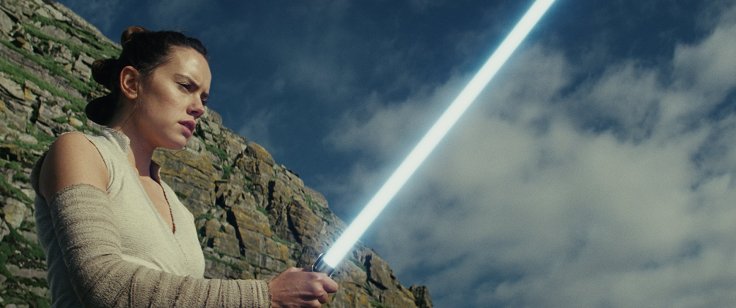
I first watched the original Star Wars trilogy the summer I was ten, because it came on TV and my older brother was in charge of the remote. I enjoyed it, but it didn’t take up much real estate in my head afterwards beyond suddenly understanding previously mystifying pop culture references.
I never ended up seeing the much-bemoaned prequels, and received my knowledge of them through cultural osmosis and sand memes. But I revisited the original trilogy before the Force reAwakened in 2015, and I saw the magic in a way I hadn’t the first time around. Maybe I was too young the first time I saw them to fully appreciate them; maybe this time, my gaze was tinted with the fondness of nostalgia, and the knowledge of how deeply beloved this story is, what an incredible achievement it was at the time, and how influential it has been over the decades. Either way, it was a delightful experience and I thoroughly enjoyed myself.
The Force Awakens was a fun ride with a wonderful new cast and a lovely nostalgic reconnection with Han and Leia. It may have been slightly too much a remix of Episode IV, but J.J. Abrams did an admirable job pulling off a near-impossible balancing act between the expectations betrayed by the prequels and a new hope (heh) for something that recaptured the old magic.
But I loved The Last Jedi.
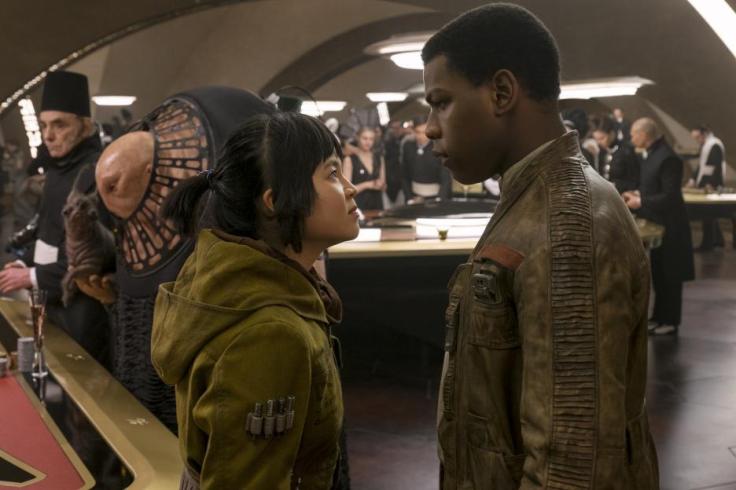
I had few expectations going in, except that it would be different, because most of what I know about director and writer Rian Johnson is that he has a unique way of seeing the world. (The rest of what I know about him is that he plays banjo and enjoys trolling his friends. So, all good things.) I didn’t imagine, however, that we’d get a story that turns so many of the established universalities of the Star Wars universe on their heads, in ways that expose and reckon with their weaknesses. How often have people semi-jokingly pointed out that the Jedi are actually pretty terrible? And here we have a movie that explicitly names the flaws which necessarily exist in an order espousing absolute superiority over and detachment from the messy, difficult parts of life. It reckons with how the rigidness of defining the Force as only ever either Light or Dark has contributed to these characters’ failures, even been instrumental in their downfalls.
There are so many things that I love about this movie—its often breathtaking visual artistry, the skillful balance between humor and pathos which is such a hallmark of this franchise, great performances from every member of this talented, beautifully diverse cast. It has it flaws, such as a runtime that severely tests even the most stalwart of bladders, or how puzzlingly long it takes for a certain person to reveal a certain secret plan. But these were small annoyances in comparison to the entirety of the positive experience I had watching The Last Jedi, not only for the reasons I’ve already listed, but for what the movie says, how it chooses to say it, and how that made me feel.
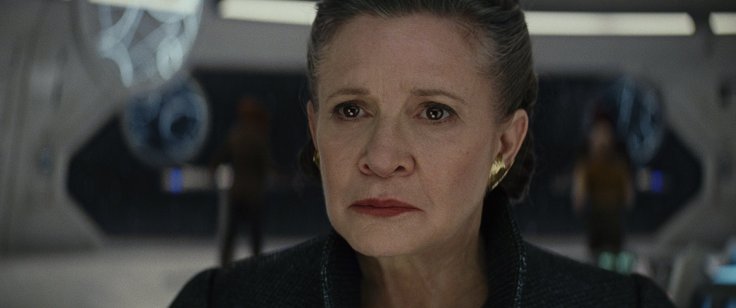
For me, what both sets this movie apart and makes it feel like a Stars Wars movie is its ideas of who and what makes a hero. A New Hope gave us not just a classic hero’s journey, but a princess who leads soldiers and rescues both herself and the men who were trying to save her. The Last Jedi subverts the idea that the Skywalkers are the heroes of this story at all. Perhaps, as was brilliantly posited by Jeff Cannata in this delightful /filmcast post-mortem, this trilogy will not be the triumphant conclusion to the heroic saga of a chosen family, but a re-democratizing of the Force after the Skywalkers have repeatedly nearly ruined it for everyone. If the first six episodes were about the tragic rise and fall of Anakin Skywalker, and these last three will cleanse the wounds left behind by his painful legacy (which all of these characters are still suffering from), then perhaps Rey’s journey is about renewing a more balanced connection to the Force, and once again opening up that power to everyone, not just a few self-appointed elites. I kind of love this idea.
I was particularly moved by this installment’s themes, and the truths our characters were made to face: that we can move beyond the past without rejecting it completely, that it’s okay to fail, and that letting go of what’s gone before means learning from our mistakes rather than simply erasing them. The solution to one extreme is never to swing the pendulum completely to the other, although that is sadly many people’s first instinct, including, ironically, some of those who were disappointed with this movie.
[MAJOR SPOILERS BEYOND THIS POINT]
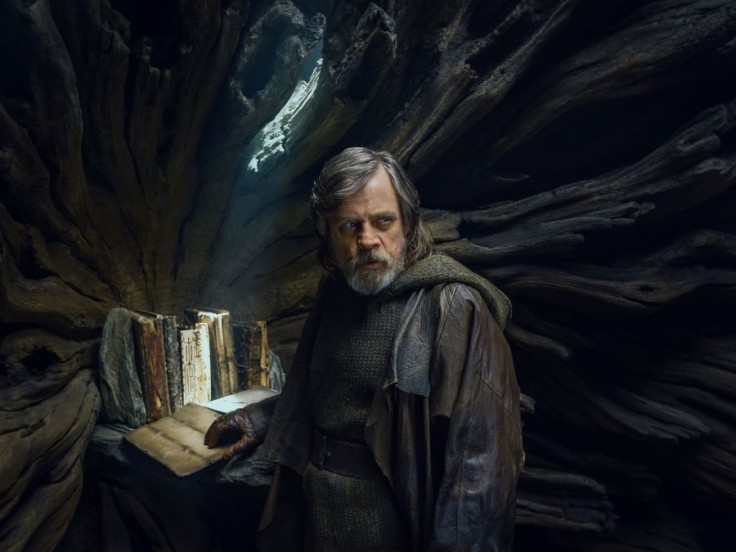
So, to address that particularly large elephant stomping angrily around the corners of the room. I can understand that Luke’s behavior in The Last Jedi could be seen as a betrayal of the heroic ideals set up in the original trilogy, and of his hard-won victories over his own temptation toward the Dark side during his final confrontation with his father. I honestly found his complete absence in The Force Awakens far more mystifying and disturbing, however; even if he had failed with Ben, why had he disappeared from the known galaxy, cutting off contact with his sister in what must have been an incredibly difficult time for her? For me, finding out that the truth of what happened between Luke and Ben was far worse than we’d imagined was not only an interesting twist, it satisfied a niggling feeling in me that couldn’t understand the extremity of Luke’s seclusion when it was first presented to us. In this and the questions about Rey’s family, I think Rian Johnson did a great job solving the “puzzle box” that he was left with, in typical J. J. Abrams fashion, after the previous film.
And here we come to another of the film’s main themes, framed around the now solved mystery of Rey’s origins: she has no famous forbears, but is simply an orphan sold off by terrible parents. Johnson says that his primary impulse in making Rey a “nobody” was that it would be the hardest, most uncomfortable thing for her to hear, in keeping with his theme of Training for this second act in the trilogy. (More on this can be heard in the /filmcast’s essential interview with Rian Johnson.) Less important but still present for him was the parallel that you don’t have to be a Skywalker to be greatly talented, which challenges the idea of the fated hero from a chosen lineage. Luke mockingly calls it “that mighty Skywalker blood,” when he derides what he calls the hubris and hypocrisy of the Jedis, leading to their failure and his own. So while Rey’s heroism still has a mythical quality, she isn’t special because of her family, but on her own merit.
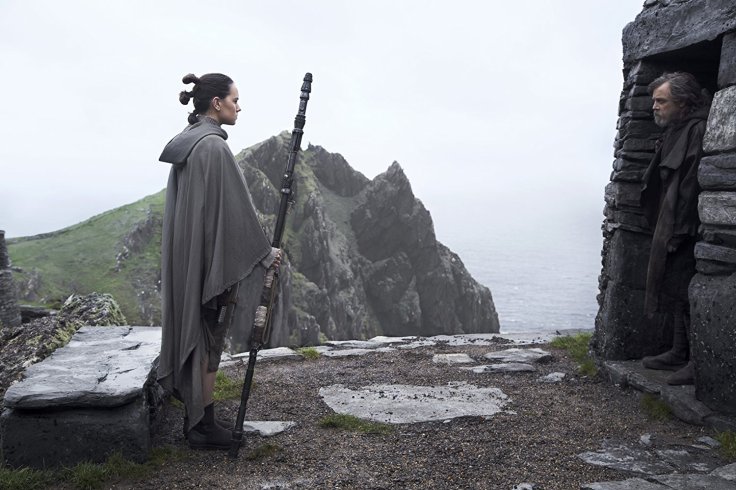
In this film Rey constantly questions Luke, her own echoing reflections, the world around her, even Kylo Ren—who is she, and what is her place in this story, in the universe itself? She’s as desperate to find her own path as Kylo is to obliterate everything to do with his life as Ben. When they find themselves connected by the Force, Kylo is simply curious as to the reason, but Rey is so certain that the universe has a plan for her, for them, and that all this must mean that he’ll turn to the Light. Each of them sees a possibly unreliable vision of the future through the lens of the outcome they desire. And yet both are forced to face uncomfortable truths: Rey, that she’s fallen into Snoke’s trap and the universe may have no grand purpose for her, and Kylo that he can’t have everything he wants, even if he kills his last master and becomes Supreme Leader himself. Rey’s friendship (or trust, or perhaps even love) for Kylo is not unconditional, but hinges on his ability to come back to being at least a version of Ben, whom Kylo is so determined to erase.
I love what the movie is telling us here. Loving and needing others is seen as a weakness by both the Jedi and the Sith. Kylo both loathes and can’t let go of the little boy inside him that thirsts for love and acceptance, and his only solution to that irreconcilable conflict is to “Let the past die; kill it if you have to.” Even when Luke finally tells Rey the truth about that final confrontation with Ben, he frames it as his own failure to conquer the boy’s Dark tendencies: “By the time I realized I was no match for the darkness rising in him, it was too late.” The idea that only either Dark or Light can win, that one must necessarily be ascendant over the other, is not just a the unofficial gospel of Star Wars, but of nearly every story in our culture’s canon of good versus evil.
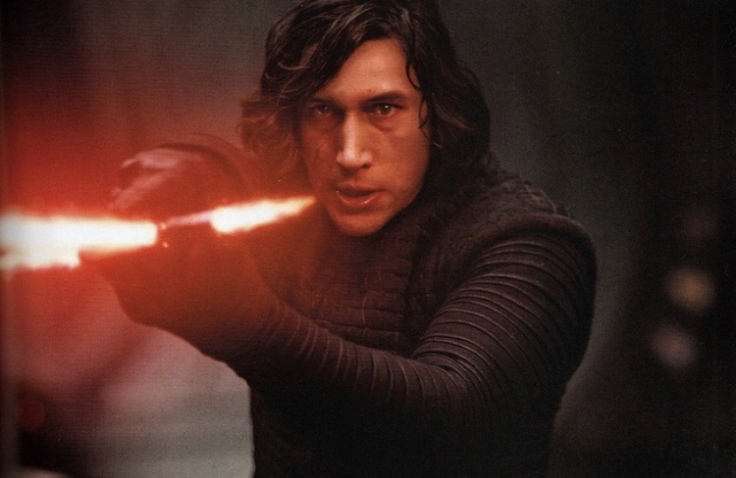
The dominant narrative of our society is underpinned by the Christian philosophy of morality: God is good and Satan is evil, and the world is in a constant state of battle between the two. Even though today this paradigm isn’t as explicitly ascendant as it was two hundred years ago, so many of our heroes’ stories rest on this way of looking at the struggle between good and evil. And yet it’s no secret that the Star Wars franchise has been heavily influenced by Japanese culture and history since its origins, and this movie is no different—Johnson, too, cites Kurosawa as a major influence in his body of work.
This movie sees Light and Dark as two halves of the same whole, and that owes itself to the influences of Asian philosophy on the Star Wars mythos. For me, it’s a refreshing change and far more relatable than the often black-and-white hero/villain blockbusters that seem to fill our theaters these days. There is no satisfaction for me in a hero that is always righteous and right, no matter how many he kills or how much destruction he causes, simply because he is The Hero (see: Batman v. Superman: Dawn of Justice, where you get two of these specimens for the price of one, and almost zero actual justice).
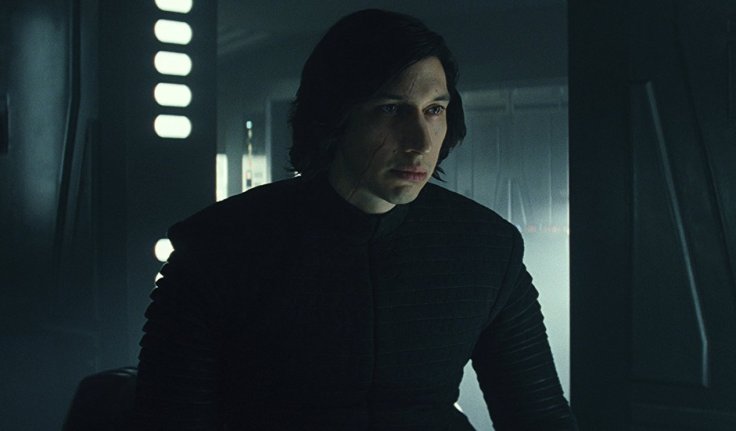
As a Muslim, I grew up with a more nuanced view; in Islamic theology, both good and evil are creations of God, who is the source of everything, and humans have free will to choose their own actions. A person’s salvation is not determined at a certain point in their life, and is never guaranteed, but remains a mystery to all but God. Instead, we live each day doing our best to remove harm and contribute good in the world, and no one can be judged because they still have the remainder of their life to live. There are no lost causes, and no saints—not while the person still lives and can turn from good to evil, or from evil to good, at any time. And the idea of avoiding extremes, of striving for balance, is a core part of our belief and practice.
I think this is why I found Rey’s journey in this film so compelling. She was unable to give up on Ben the way Luke had, and despite her ultimate failure to “turn” him, her efforts weren’t foolish or wasted. She couldn’t convince Luke to leave with her, but she did change his mind about the futility of reaching out to his nephew again when he was so emphatically against it. Luke came to understand that it wasn’t his job as a teacher to conquer the darkness in Ben’s soul, or to scare Rey off from the Dark that showed itself so easily to her, but to pass on to both the wisdom he had gained through his own failure.
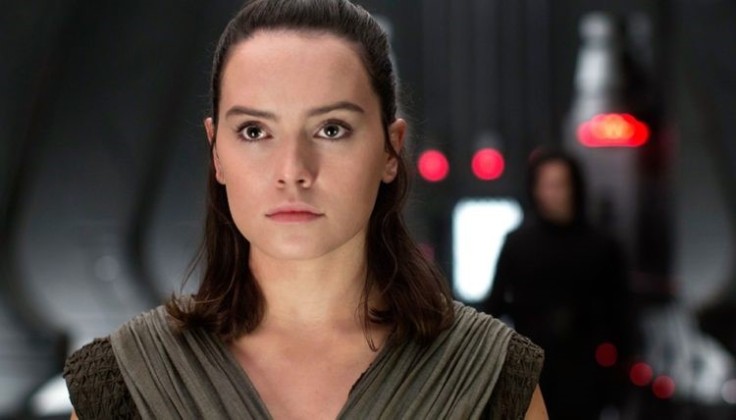
Rey, too, comes to Ahch-To in search of a legend to save the Resistance, and a master to guide her; she ultimately has to face the fact that Luke cannot (or will not) be either, but that what she learns from his mistakes can give her the courage to strike out on her own. Perhaps now, she can find a new way of relating to the Force that might avoid the creation of new Vaders and Kylo Rens in the future, balancing Light and Dark in a healthy way that uses the strengths and cancels out the weaknesses of each. It makes me very excited for what’s to come in the conclusion of this trilogy.
In 2017, many of us lost the ability to critically examine our own biases and started punching first and asking questions later—and no wonder, because it was such a disheartening, emotionally destabilizing year. So many of the institutions that underpin our society were exposed to be corrupt to a degree that we hadn’t anticipated (even those of us who knew there was a certain amount of rot were dismayed to see how deep it actually goes). Of course, there’s an element of relief in all this, in the way that the lancing of a boil is the beginning of healing from the infection, and there were significant positive strides made in the representation of minorities in TV and film. Still, it’s been a rough year and one where many of us reached for entertainment to give us comfort from the harshness of reality.
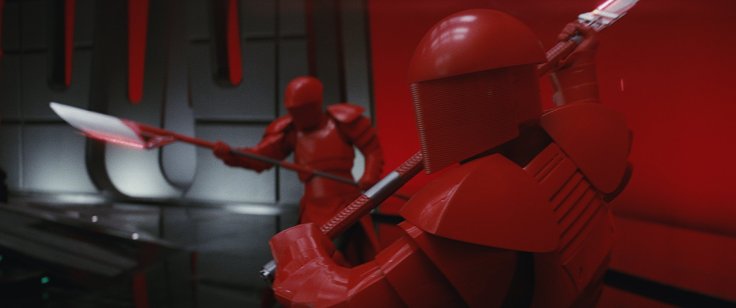
In the wake of all this upheaval, some fans have become virulently averse to seeing their nostalgic favorites take any significant departures from the established canon that they grew up with, even when those changes take their cue from rules the world of the franchise has already set up. And especially, it seems, when the industry attempts to make space for those who have traditionally been excluded from these white-male-dominated universes. In 2017 alone we saw the backlash faced by the Alamo Drafthouse for having all-female Wonder Woman screenings, the fan petitions to see the nonexistent “Snyder Cut” of Justice League and to have Episode VIII struck from the Star Wars canon. Most recent and ridiculous was the MRA-produced “de-feminized” version of The Last Jedi that erased the women from the story.
Of course, not everyone who has problems with this movie are coming from that dark place. Many people have legitimate issues with the way this installment went, and I have no beef with them. But I propose that it might be healthy to see one of our most beloved fictional heroes make mistakes, and disappoint us, and find his way to a redemption that brings him peace and wisdom, and gives others hope and allows them to escape and survive to fight a new day. Even if he has to give up his life in the process.
I don’t think that’s such a bad hero’s journey, for who we are in these times.
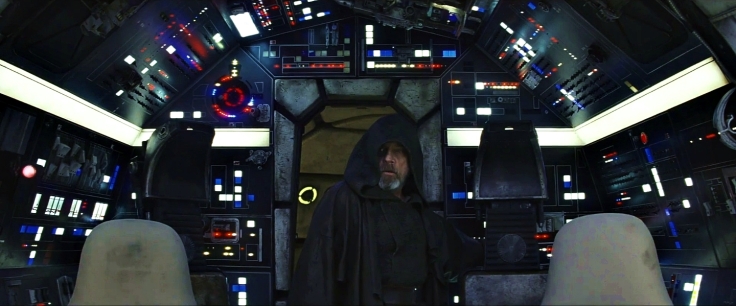
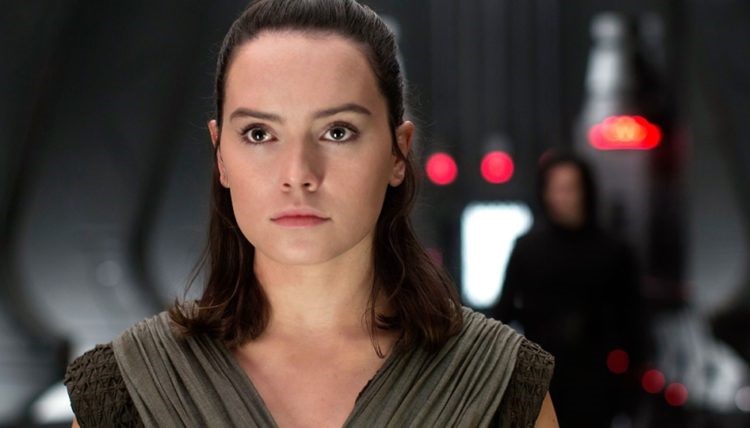
Thanks for writing this! I got so weary reading all of the complaint reviews that I’m enjoying basking in thoughtful reviews like this, reviews that see the same kinds of things that I saw in this movie.
Cheers!
LikeLike
Thank you for your comment! I had so much fun writing it, honestly.
LikeLike
And you got a notice from the man himself! That’s pretty darn cool. Congrats!
LikeLiked by 1 person
Yes, so unreal! I’m still pinching myself!
LikeLiked by 1 person
Oops sorry! I didn’t realize I was logged in with my other account. Still me, as you’ve obviously figured out. 🙂
LikeLike
This was an exquisite examination of what I regard as one of the most challenging Star Wars films I’ve ever seen.
I struggled with The Last Jedi from the first time I saw it. I’ve gradually come to recognize the genius in the story telling and the legacy it has left behind.
Thank you for this piece. Thank you.
LikeLiked by 1 person
Thank you for your lovely comment, and for reading. I’m humbled that this piece has reached so many people.
LikeLike
Reflects a lot of what I think about this movie. BTW, give the prequels a chance. They’re a subtle influence on this film.
LikeLiked by 1 person